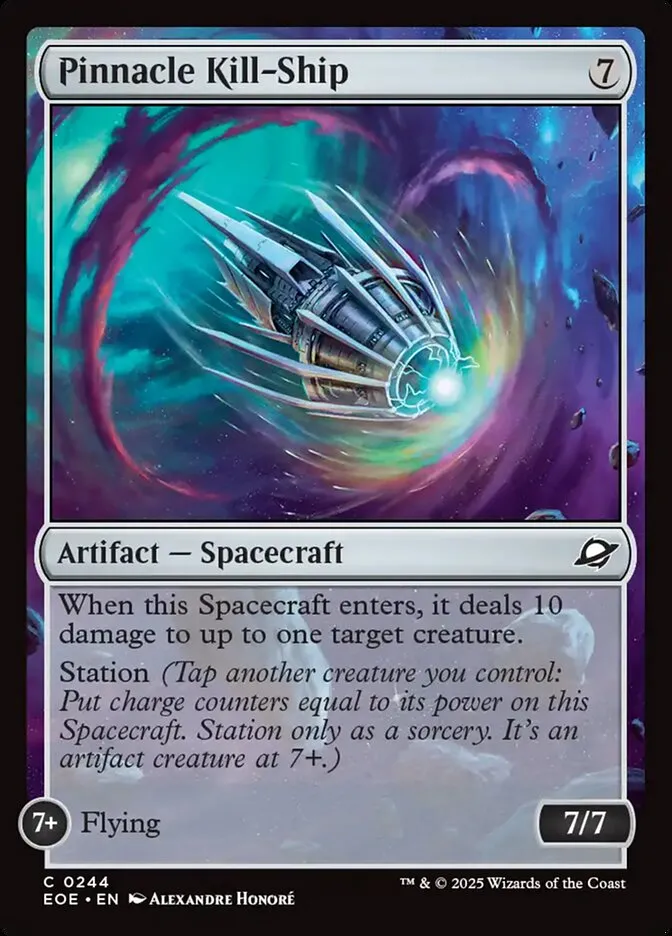Sometimes nuance is bad actually
If you follow me on Bluesky, it's probably not a secret to you that I have not enjoyed the newest Magic set. Don't get me wrong, I like a lot of the cards individually, and I greatly enjoy the story and art of this set, but one of the main ways I engage with Magic is playing Limited, and this set is one of the worst draft formats I've played in a long time.
I'm not alone in complaining about this; I think overall sentiment on the draft environment is that it's below average to bad. A notable datum here is that 17lands' users have a worse winrate than usual with this format, but the players who usually win less are doing even worse. This is explained by three factors:
- The format robs players of some skill expression by overall having more non-games, as the mana fixing and card flow is quite bad compared to most modern Limited formats
- The format robs players of some more skill expression by overall having more 'trainwreck' drafts happen, as the power level at common is quite low. It's very easy to get extremely punished by bad draft outcomes.
- The format is overall hard to draft and play, with a lot of skill-testing and nuanced decisions.
I want to talk about that last point because it's something that might in a vacuum be perceived as 'good' but in practice it plays out to create some truly rancid experiences. I think most of the blame here can be laid at the feet of the spacecraft/Station mechanic, which is in my experience extremely cursed design space.

Station is the latest iteration of the design lineage that also includes Vehicles and Mounts. Like vehicles, you can tap your creatures to station your spacecraft. Unlike vehicles, rather than a one-off activation to 'crew' it for the turn, spacecraft build up gradually, adding 'station counters' equal to the power of the creature stationing them until they become artifact creatures.
This creates a complicated set of sequencing and planning decisions. With vehicles, you almost always want to crew them if you can, because they are almost always better than the creature you'd be tapping to crew them.
With spacecraft, you are giving up on using your creature for a turn cycle to build up towards turning on the spacecraft. This requires a lot of thinking: is it worth to give up potential damage by not attacking? Is it safe to take more damage because you can't block? Are you able to turn on the spacecraft this turn? Next turn? What happens if you commit to stationing and they kill your spacecraft after it becomes a creature?
These decisions get exponentially more complex the more creatures are on the board overall for both players. However, they tend to drain into the same place: stationing spacecraft isn't worth taking extra damage or giving up on dealing damage, and so you should only do it when it's basically free. But there's enough times where this basic heuristic is wrong that you still need to think through your turn very carefully!
This can drastically slow down games, with both players taking very delicate turns where they have to manage these stationing decisions with a lot of care; this in a format with a lot of other nuanced play decisions, like whether to sacrifice a Lander token or where to put +1/+1 counters.
Complexity is of course a perennial issue for Magic, but the reason spacecraft are kind of terrible for the play experience is that they marry this slowdown of play with a snowball-y, win-more dynamic. Spacecraft are at their best when you have a big board of creatures already, which means that they tend to be best when you're already winning.
This means that they are uniquely suited to create situations where you now you're disfavored to win a game but your opponent still has to take a lot of time playing their turns.
And, conversely, spacecraft tend to be quite bad if you don't have any creatures in play. If you're topdecking with an empty board or generally playing a low-resource game, they feel terrible to draw! And EOE generates a lot of low-resource games; the set has not one, not two, but five mass creature removal spells in its rare sheet. Removal in general is extremely ubiquitous and available in this format!
All of this of course adds up to spacecraft being overall quite bad, with a lot of expensive, low-impact spacecraft cards having underwater win rates. But there's enough playable spacecraft that you (and your opponents) are liable to end up with some in your deck, anyway.
Is the conclusion here that mechanics that lead to these kinds of nuanced decisions are inherently bad? Not really; but I the observation I would make is that these sorts of extra decisions can be problamatic if they are...
- Jagged, in the sense that they tend to cluster around single critical turns.
- Marginal, meaning that the decisions have a small (but significant enough to care about) effect relative to the complexity they add.
- Slow, in that the consequences for making a mistake take too long to reveal themselves.
Spacecraft create all three problems! Their impact on the game tends to cluster around the turn when you play them and the turn immediately after. They often create fiddly marginal decisions in low-margin games. And a very common play pattern with spacecraft is opting to crew on a midgame turn at the cost of 3 damage or 3 life, and then lose several turns later because that life total delta mattered.
Overall, I'm perfectly happy to never see these again.